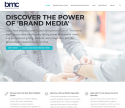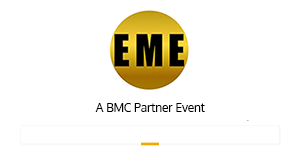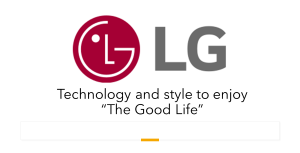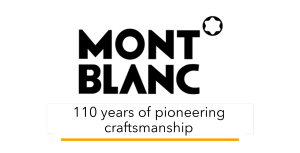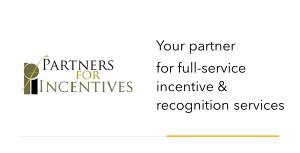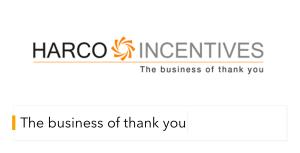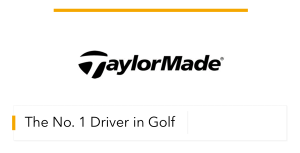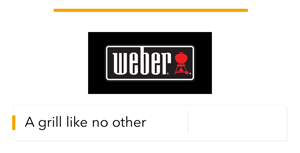Dittman Incentive Marketing and Impact of Engagement
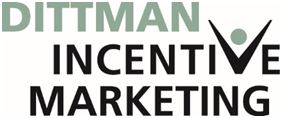 To see how the emergence of the engagement field is affecting traditional providers of engagement solutions, from leadership and assessment to analytics, innovation and incentives, ESM periodically interviews leaders in each of these areas to gain insights from executives at the front lines. This time: Jim Dittman of Dittman Incentive Marketing.
To see how the emergence of the engagement field is affecting traditional providers of engagement solutions, from leadership and assessment to analytics, innovation and incentives, ESM periodically interviews leaders in each of these areas to gain insights from executives at the front lines. This time: Jim Dittman of Dittman Incentive Marketing.
Originally founded by Jim Dittman in 1976 as an integrated marketing services company known as Lancer Communications, the company began to focus its efforts on developing incentive programs to motivate salespeople, dealers and distributors. As Dittman describes it, “we rapidly gained a high-profile reputation for creating original, inspiring incentive travel programs, as well as carefully targeted merchandise incentives that helped clients exceed their business objectives.” Within a few years the firm shifted its business on sales and dealer motivation and changed its name to Dittman Incentive Marketing.
From the start, Dittman was at the forefront of advancing best practices through the creation of associations and research organizations in the field. Before starting Lancer, he became the first corporate member of the fledgling Society of Incentive Travel Executives in 1973. His company managed SITE until a full-time staff could be created. He functioned for many years as an advisor to the industry’s leading event at the time, the Incentive Travel & Meeting Executives Show, eventually serving as President of SITE. He 1987 he was named one of the 25 Most Influential People in the Travel by Business by Travel News.
Dittman also became active in the Incentive Marketing Association and was a founding trustee of the Forum for People Performance Management and Measurement at the School of Integrated Marketing at Northwestern University in the 1990s, which conducted ground-breaking research that identified the principles of Enterprise Engagement. In 2008, his company became a founding sponsor of the Enterprise Engagement Alliance.
Dittman notes that, over the past decade, “the company has become deeply engaged in the application of incentives, recognition and rewards to non-sales audiences. Additionally, the company has been on the front edge of the enterprise engagement movement to aid clients in realizing the full potential of their human capital.”

In the following Q&A, Dittman offers some insights on the future of engagement and its impact on business.
Q: You were one of the original founders of the Enterprise Engagement Alliance and the concept of Enterprise Engagement, and supported the effort through the worst years of the recession. Why?
A: Forty years ago I founded Dittman Incentive Marketing on the belief that businesses could do better. I believed then – and I still do – that organizations could create the culture and the conditions for success through people. To truly thrive, employees need to do interesting and challenging work, to work with people they respect, to work for a company that has values they believe in, to work for a company that does something of value, and to be appreciated for the contributions they make. This has been our guiding philosophy and informs our solutions for clients and our choices in our own workplace.
When we first began, clients talked about these issues in terms of performance motivation, then performance improvement. In the last few years, the discussion has centered on engagement and its many components – recognition, incentives, communication, education and career development, among others. The terminology and technology may evolve, but the principles of connecting people to organizational goals remain the same.
In a competitive environment, keeping the entire team focused on your goals can make the difference in retaining or earning business. In challenging times, such as the recent recession, it is essential to provide direction and reassurance to the best employees, as they’re the ones who will carry your business through to better circumstances. Recognition and engagement become very important when people are asked to take on extra work and are unsettled by change. The economic downturn was certainly no time to let employees or channel partners become disconnected from the organization’s long-term success.
Q: As a company that helped found the original concept of incentive travel, you’ve seen the development of new fields. Where do you see the field of Enterprise Engagement in its life cycle in business -- nowhere, early stage, never will happen?
A: The idea that it takes engaged employees to build a successful business has firmly taken root. From corner offices to factory floors, most leaders and managers realize that it takes the good will and best efforts of everyone on the team to generate the greatest results. We have known for a long time that people were the key to success, but now the data is emerging to confirm it, and the C-Suite has taken note.
Technology is now an important part of what we do to engage employees and channel partners. It has not only contributed to our understanding of the data supporting the concepts around engagement, but also gives us new ways to communicate to the field in timely and interesting ways. We can reach employees in an instant, no matter where they are in the world, providing an important connection to the organization and sharing in mutual success. Global engagement, on-the-go, is here to stay, from a laptop in a coffee house in Vienna to a smartphone on a train in New York City.
Q: To what extent do you think corporations are now looking at seriously applying engagement principles and ROI-based program design in their recognition, incentive and event programs?
A: In a post-recession environment, corporate program managers are keenly aware of the importance of program ROI. A well-designed incentive program should always pay for itself out of the incremental increase in profit generated by the program. This isn’t news to most organizations, but it has become increasingly important to be able to measure the effectiveness of incentives after the negative “optics” of the economic downturn.
ROI in recognition is harder to measure, as the relationship between cost and benefit is less direct. Most organizations are looking at turnover rates, absenteeism, employee surveys and customer satisfaction scores, among other metrics, to be sure that they’re on the right track, connecting behaviors with business outcomes.
Q: What effect do you think the research on the proper use of rewards and recognition is having on the minds of the corporate practitioner in terms of program design and the reward experience?
A: Our clients are definitely interested in the research behind the practice of engagement. As was noted in the recent Incentive Research Foundation paper, 2016 Trends in Incentive Travel, Rewards and Recognition, “The perfect reward poorly presented would have half the impact.” The dynamics that exist between the corporation and the people delivering on the brand promise are critical to the outcome of each interaction with customers. The increasing body of research available is important to developing a strategy that will be the most effective for each unique workplace.
Q: We see your advertising about TotalPRO. What is it and what makes it unique?
A: Our TotalPRO platform is constantly evolving to reflect the changing demands of the marketplace and to integrate new technology. We keep a close watch on two elements: the user experience and the ease-of-use for the program administrator. The platform has great flexibility and can include modules for employee engagement, sales incentives and years of service, among others, and can be adapted to fit the needs and initiatives of each client. Our mobile app ensures that the increasingly far-flung workforce can participate in the program from the home office to company headquarters.
One of the most exciting recent additions is Agent Rewards, which is an industry-leading module for channel partner incentives and training programs. This unique module allows program administrators to quickly and efficiently communicate, track and reward even in complex hierarchies and distributor networks.
Q: What makes your company unique?
A: Very few things in life are unique. But there are a number of things that make our company outstanding. At Dittman Incentive Marketing, we practice what we preach. Our employees benefit from exactly the kind of programs we provide for our clients – from incentives for innovation to rewards points for delivering on our brand promise. We know how to celebrate success together and we commit time, energy and resources to giving back to our community in employee-driven initiatives. In fact, we were selected as one of New Jersey’s Best Places to Work.
We take a great deal of pride in our own engaged workforce and we know that the resulting efforts they make for our clients shine through in everything we do. Our team is committed to delivering a world-class experience for every participant on every program, and for each client as they navigate towards the organization’s goals.
We see ourselves as an extension of each company client and strive to develop the tools and the service to be worthy of the effort to attain every reward received and every achievement recognized. Our solutions – from award-winning travel programs to recognition platforms – are designed with the success of the client in mind, every time.
We consider ourselves to be a “right-size” company with a highly effective team. Our senior leaders are on the front line of our programs and are constant resources for clients who need help or just want to brainstorm. We’re always on the lookout for deep thinkers who can contribute, not only to the success of our organization, but to that of our clients as well.
Q: Where do you see the marketplace going? What’s the potential of Enterprise Engagement?
A: The future of our industry is certainly tied to the technological advancements that are going on around us all the time. Perhaps travel incentives will be promoted with virtual reality headsets like Google Cardboard. We can confirm that user or guest experiences – whether on the TotalPRO platform or on-site at a group travel program – are increasingly personalized thanks to the technology used to support them. It remains to be seen how the push for privacy will play out in this area.
Millennial workers are now the largest group in the workforce. Pew Research reports that they now number over 53 million workers in the United States. A greater emphasis must be placed on providing direction and training to help them integrate into the team and to rapidly gain the tools and skills they need. Recognition and engagement platforms are perfectly positioned to support those efforts.
Engagement with employees, channel partners, customers and community will continue to be a priority among businesses that understand that a human connection is necessary for a business to thrive. As more and more data becomes available for interpretation, we should be increasingly able to understand what is working and what’s not in the field of motivation. It has been very rewarding to see the emerging data provide proof of the link between engagement and business outcomes. What made logical sense has now been proven as an essential business strategy.



